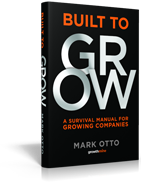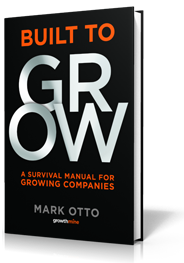
7 Rules for Hiring Experts

Perhaps you’ve grown your business without the advice of others, but your business most certainly will not reach its full potential if you continue to do so. All successful CEOs and entrepreneurs can benefit from the expertise of outsiders. But we’ve all heard the jokes and horror stories that plague the professional services industry. And I know all too well the damage that can result from failed engagements with outside experts.
The difficult truth is that if you hire an expert who doesn’t deliver the results you want, it’s entirely your own fault. In almost all cases, you get exactly what you deserve. That’s a tough pill to swallow for many CEOs and entrepreneurs. But it really should come as no surprise. In the business advice industry, results vary greatly. Just like any other profession, the quality of expertise varies widely. There are top-notch experts, middle of the road practitioners, newcomers with light expertise, and academic theorists with no real-world business problem-solving experience.
Advisors don’t fly in like Mighty Mouse to “Save the Day!” Hiring an advisor doesn’t mean that your problems are going to magically disappear. Advisors, consultants, and executive coaches do not have super powers. But they can play a very important role in the overall success of a business. Follow these rules for hiring and managing outside experts:
1. Get What You Need
Too often, executives hire experts without knowing exactly what they are trying to accomplish. If you don’t know what you need and what you are trying to accomplish, how are you going to know who to retain? Never hire an expert without first understanding what the problem is that needs to be solved. Only when you know what you need – and what you don’t need – should you begin looking for an advisor’s help.
If an expert offers a prepackaged solution to your particular problems, walk away. Find one with real experience, a broad perspective, and a flexible approach. You need someone who will work within the context of your business, not just sell you a beautifully packaged solution.
2. Be Prepared, Committed, and Capable
You must commit to making very tough decisions, perhaps at significant cost to some in the organization, and you have to determine if the organization is capable of achieving the outcome – the problem, moving forward, restructuring, or whatever it is you want or need to achieve. Before considering a consultant, honestly and thoroughly assess your organization’s capabilities, resources, level of commitment, and preparedness for the changes you are considering. Only then will you know how a consultant might add value to the business.
3. Choose Wisely
Before you consider talent, reputation, cost, availability, or location, understand your perspective advisor’s values. It doesn’t matter what the expert’s track record is if he doesn’t share your values, relate to your culture, know your market, or understand your strategy. Never let an outsider touch your business who doesn’t share your values.
And never select an expert based on cost. In almost all instances, you get what you pay for. Nothing could be more harmful to your business than getting bad advice. Top-flight expertise isn’t cheap, but it can be well worth the investment. Hire the best advisors you can afford.
4. Support the Consultant’s Efforts
There must be frank, open communication throughout the assignment to determine and resolve the issues involved. Introduce the consultant, explain why she is there, and assure that she gets all the information she needs from every source in the business. Some will feel threatened and reluctant to cooperate, so you must ensure that such conflicts are addressed and resolved. Organizational resistance will undermine the effort, so there have to be means found or developed to overcome it.
5. Avoid Dependency; Build Capability
Organizations should strive toward having the means, resources, and capability to solve their own problems; when they don’t, they should develop them through working with an outside expert. From the outset, knowledge should be shared with and by the consultant so that people within the organization become capable of solving similar problems in the future without depending on a consultant.
6. Know the ROC (Return on Consulting)
Clearly communicate to the consultant what outcomes you are looking for, and what benefits you expect him or her to deliver – what returns you are looking for. Make sure there is a plan with milestones and deadlines in place to measure progress. It is your responsibility to proactively manage the consultant and the process to ensure the best possible outcome. You want to be assured that the cost of consulting is worth the benefits it yields. The expected return must be clearly understood by both parties, and clearly spelled out before the engagement begins.
7. No Quick Fixes
Executives facing problems and challenges they cannot handle naturally hope for and some believe in a solution that is easy, economical, and quick. Some consultants will claim they have such solutions. However, complex business problems are almost never solved overnight with a few simple changes. Such a mindset leaves executives vulnerable to consulting services inappropriate to the actual needs. Solutions that seem too good to be true are almost always neither good nor true.
When it comes to hiring experts – buyer beware. But you can drastically improve the odds of a successful outcome if you take a well-informed approach to managing the engagement.
Do you apply these rules when hiring and managing an expert?





